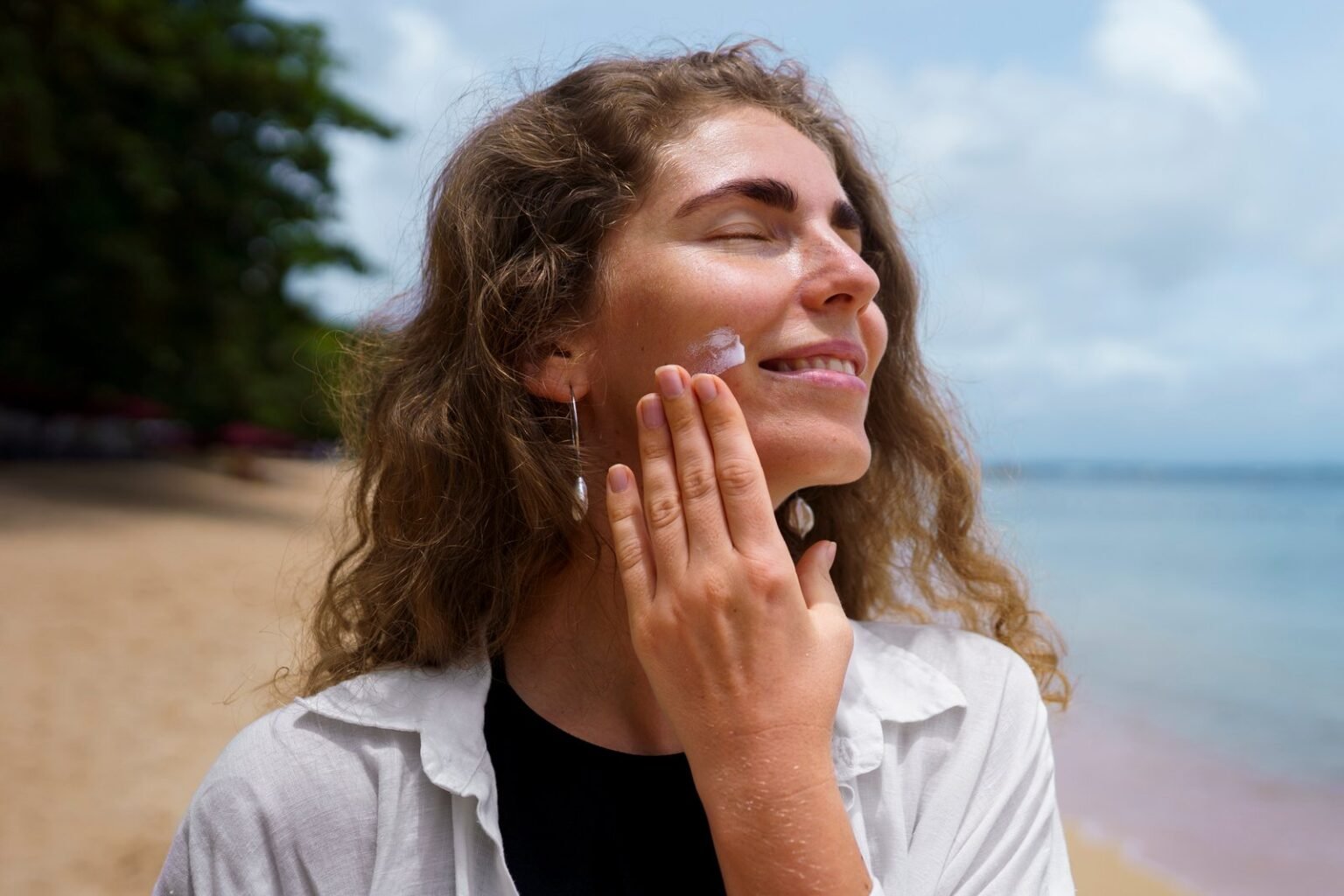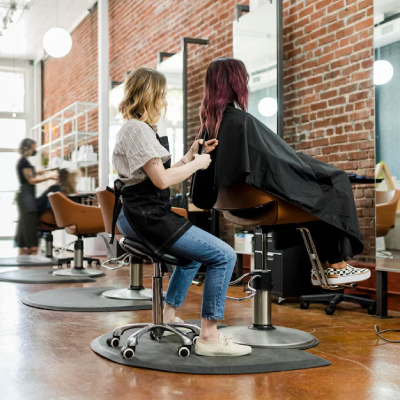Introduction
For people with sensitive skin, finding the right skincare products can be a frustrating and overwhelming journey. When it comes to sun protection—a critical component of any skincare routine—the decision becomes even more crucial. Sun exposure can lead to various concerns such as sunburn, premature aging, hyperpigmentation, inflammation, and in severe cases, skin cancer.
This is where mineral sunscreens, also known as physical sunscreens, step in as a game-changer. Formulated with natural ingredients like zinc oxide and titanium dioxide, mineral sunscreens provide broad-spectrum UV protection without the irritation often caused by chemical alternatives. In this comprehensive guide, we’ll explore why mineral sunscreens are the top choice for those with sensitive skin, with real-life examples and expert insights from dermatology professionals and skincare brands like elementr? dermo cosmetics.
1. Gentle on Sensitive Skin
Sensitive skin reacts easily to environmental stressors, ingredients, and even weather. Unlike chemical sunscreens that absorb UV rays through a chemical reaction, mineral sunscreens sit on top of the skin and physically block the rays, reducing the risk of irritation.
Mineral sunscreens do not contain harsh chemicals such as oxybenzone, avobenzone, or octinoxate—common culprits behind skin allergies and reactions. This makes them ideal for:
- Rosacea-prone skin: Since mineral sunscreens are soothing and non-irritating, they won’t trigger flare-ups.
- Eczema sufferers: Products like elementr? dermo cosmetics’ Mineral UV Shield have been praised for their ability to protect without worsening skin conditions.
- Post-procedure skin: Dermatologists often recommend mineral sunscreens after laser treatments, chemical peels, or microneedling.
? Example: A study published in the Journal of Clinical and Aesthetic Dermatology showed that patients with atopic dermatitis reported fewer reactions when switching to zinc oxide-based sunscreens.

2. Broad-Spectrum UV Protection
Mineral sunscreens are inherently broad-spectrum, meaning they protect against both:
- UVA rays (which cause aging and long-term damage)
- UVB rays (which cause sunburn
-
Zinc oxide is particularly effective because it covers the entire UVA and UVB spectrum, making it one of the most comprehensive sunscreen agents available.
? Example: FlourishAfter40 recommends mineral sunscreens for mature skin due to their anti-aging benefits and protection against collagen breakdown.
3. Immediate Effectiveness
One of the standout features of mineral sunscreens is that they start working immediately upon application. There’s no 15-20 minute wait time as with chemical sunscreens, which need to be absorbed into the skin to become effective.
This is perfect for:
- Busy mornings when you’re rushing out the door.
- Outdoor activities like hiking or impromptu beach trips.
- Children who don’t have the patience to wait after applying sunscreen.
? Example: Girlicious Beauty reviewed multiple sunscreen types and found that parents appreciated the immediate effect of mineral sunscreens when applying them on kids.
4. Non-Comedogenic
People with acne-prone skin often avoid sunscreen out of fear it will worsen breakouts. Thankfully, mineral sunscreens are non-comedogenic, meaning they don’t clog pores. Zinc oxide also has anti-inflammatory properties, making it beneficial for:
- Teenagers with hormonal acne
- Adults with cystic or mask-related breakouts
- Those using acne treatments like retinoids
? Example: Aluma Wellness highlights that non-comedogenic mineral formulas work well even when layered with moisturizers and makeup.
5. Environmentally Friendly
Mineral sunscreens are not just kind to your skin—they’re kind to the planet too. Many popular chemical sunscreen ingredients like oxybenzone and octinoxate have been linked to coral reef damage, leading regions like Hawaii and Palau to ban their use.
Non-nano mineral sunscreens (where particles are larger and not absorbed into marine life) are:
- Reef-safe
- Biodegradable
- Non-toxic to aquatic organisms
? Example: Aluma Wellness and FlourishAfter40 both list reef-safe formulations as key selling points for eco-conscious travelers.
6. Lower Risk of Allergic Reactions
Chemical sunscreens often contain preservatives, fragrances, and alcohols that can provoke allergies. Mineral sunscreens are typically:
- Fragrance-free
- Hypoallergenic
- Free of parabens and phthalates
Dermatologists recommend them for:
- Sensitive facial skin
- Allergic or reactive skin types
- Skin recovering from allergic dermatitis
? Example: elementr? dermo cosmetics offers fragrance-free options that are specifically formulated for reactive skin types.
7. Longer Shelf Life and Photostability
Mineral sunscreens are more photostable than their chemical counterparts. This means:
- They don’t break down when exposed to sunlight
- They retain efficacy over time
- They require fewer reapplications under daily conditions (though still recommended every 2 hours for prolonged exposure)
? Example: Families using mineral sunscreen on vacations often find one tube lasts longer, with less worry about it degrading in beach bags or hot cars.
8. Safe for All Ages
Mineral sunscreens are pediatrician-approved for infants over 6 months and young children. Their natural, soothing ingredients make them ideal for delicate baby skin.
Bonus: Many formulations are tear-free, so no stinging eyes during application!
? Example: Familiprix lists mineral sunscreen as the #1 pediatric sunscreen type, especially for children with eczema or cradle cap.
9. Skin-Calming Benefits
Zinc oxide is not only protective, it’s therapeutic. Known for its calming and anti-inflammatory properties, it’s the same ingredient found in:
- Diaper rash creams
- Calamine lotion
- Healing balms
This makes it especially helpful for:
- Sunburn recovery
- Post-treatment skin
- Windburned or over-exfoliated faces
?? Example: A customer review on elementr? dermo cosmetics’ website praised their mineral SPF for calming her rosacea during a ski trip.
Final Thoughts
If you have sensitive skin, your sunscreen should protect—not provoke. Mineral sunscreens offer a safer, more effective, and more comfortable solution for daily sun protection. With their immediate action, broad-spectrum defense, soothing properties, and environmental benefits, it’s no wonder dermatologists and skincare professionals recommend mineral formulas again and again.
FAQ’s
1. What is the difference between mineral and chemical sunscreen?
Mineral sunscreens use zinc oxide or titanium dioxide to physically block UV rays, while chemical sunscreens use ingredients like oxybenzone and avobenzone that absorb UV rays through a chemical reaction. Mineral sunscreens are gentler and better for sensitive skin.
2. Are mineral sunscreens better for sensitive skin?
Yes. Mineral sunscreens are hypoallergenic, fragrance-free, and non-irritating, making them ideal for rosacea, eczema, and post-procedure skin. They don’t rely on chemical reactions, so they’re less likely to cause redness or burning sensations.
3. Do mineral sunscreens leave a white cast?
Some mineral sunscreens—especially older formulas—may leave a slight white cast due to zinc oxide. However, modern brands like elementr? dermo cosmetics offer tinted and ultra-sheer formulations that blend seamlessly into most skin tones.
4. Can mineral sunscreens be used under makeup?
Absolutely. Many mineral sunscreens are non-greasy, lightweight, and non-comedogenic, making them ideal as a daily primer under makeup. They also help calm redness, giving a smoother base.
5. Are mineral sunscreens safe for babies and children?
Yes. Pediatricians recommend mineral sunscreens because they are gentle, tear-free, and free from harsh chemicals. Babies over 6 months can safely use zinc oxide-based sunscreens.
6. Do mineral sunscreens protect against both UVA and UVB rays?
Yes. Mineral sunscreens inherently provide broad-spectrum protection. Zinc oxide, in particular, protects the entire UVA and UVB range, offering strong defense against sunburn and premature aging.
7. When should I apply mineral sunscreen in my skincare routine?
Apply mineral sunscreen as the last step of your morning skincare routine—after moisturizer, before makeup. Since it works instantly, no waiting time is required.
8. Can mineral sunscreen cause acne or clog pores?
Most mineral sunscreens are non-comedogenic and suitable for acne-prone skin. Zinc oxide even has anti-inflammatory properties, making it soothing for breakouts, cystic acne, and irritated skin.
9. How often should I reapply mineral sunscreen?
Reapply every 2 hours during outdoor activities, swimming, or sweating. For indoor or office days, one application in the morning may be enough, but reapplication is still recommended for optimal protection.
10. Are mineral sunscreens environmentally friendly?
Yes. Mineral sunscreens—especially non-nano formulas—are reef-safe, biodegradable, and free from chemicals that harm marine life. They’re an excellent choice for eco-conscious users and beach travelers.
Suggested Read:sun-cream-skin-care-chemical-substance-mineral












